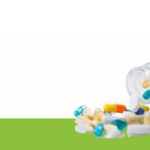Beautiful and healthy teeth are not just important for smiling. Good oral health is part of your overall health and wellness. A chip in your tooth can result in the removal of that tooth just as an accumulation of food debris can build up to cause tooth decay over time. Now, that will not be good for your oral health. Some of the dental issues you experience are a result of avoidable bad habits.
Here are some of these habits that can damage your teeth –

Opening bottle caps and packages with your teeth. The teeth are not tools for opening things, rather; keep an opener/scissors handy always.
Constant consumption of foods and drinks high in carbohydrates, sugar, and acids like candies, soda, artificial fruit juice, coffee, red wine, starchy foods, etc. Be sure to brush your teeth thoroughly after eating such foods and if possible, cut down on the intake in order to help your dental health.
Misuse of toothpicks can cause injuries to your gums or an artificial gap in the teeth when thrust deep in between teeth. If you must use toothpicks, use them minimally and carefully.

Chewing on ice. If you feel like chewing something, chew on a carrot or some healthy snack but do not chew on ice unless you plan to damage your teeth.
Tongue and lip piercing can get infected and compromise oral health or harbor bacteria. Consult your dentist before you pierce your tongue or lip.
Teeth grinding/gnashing (bruxism). Use a mouth guard if you grind your teeth while sleeping. Make a conscious effort to stop the habit during the day.

Non-usage of a mouth guard during contact sports like boxing can damage one’s dentition. Make sure you use a mouthguard while playing contact sports. to protect your teeth.
Chewing on pencils, pens, and other unusual solid objects is a habit that can damage your teeth. You need to stop it.

Nail-biting not only places your teeth and jaw under pressure but also introduces germs into your mouth.
Other habits and foods that can save your teeth include –
Brushing of teeth at least twice daily (morning and before bed at night)
Eating a healthy diet
Drinking lots of water
Visiting your dentist regularly



